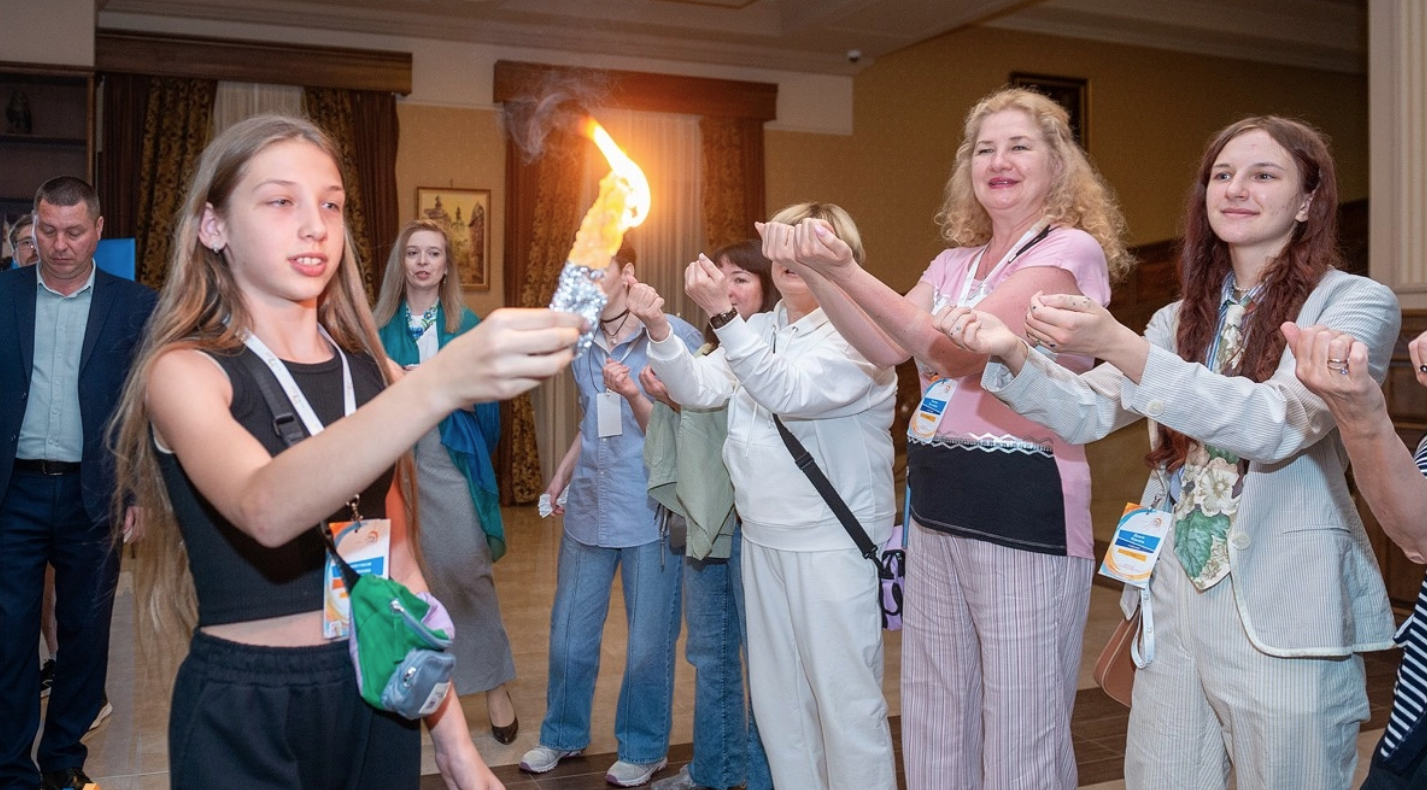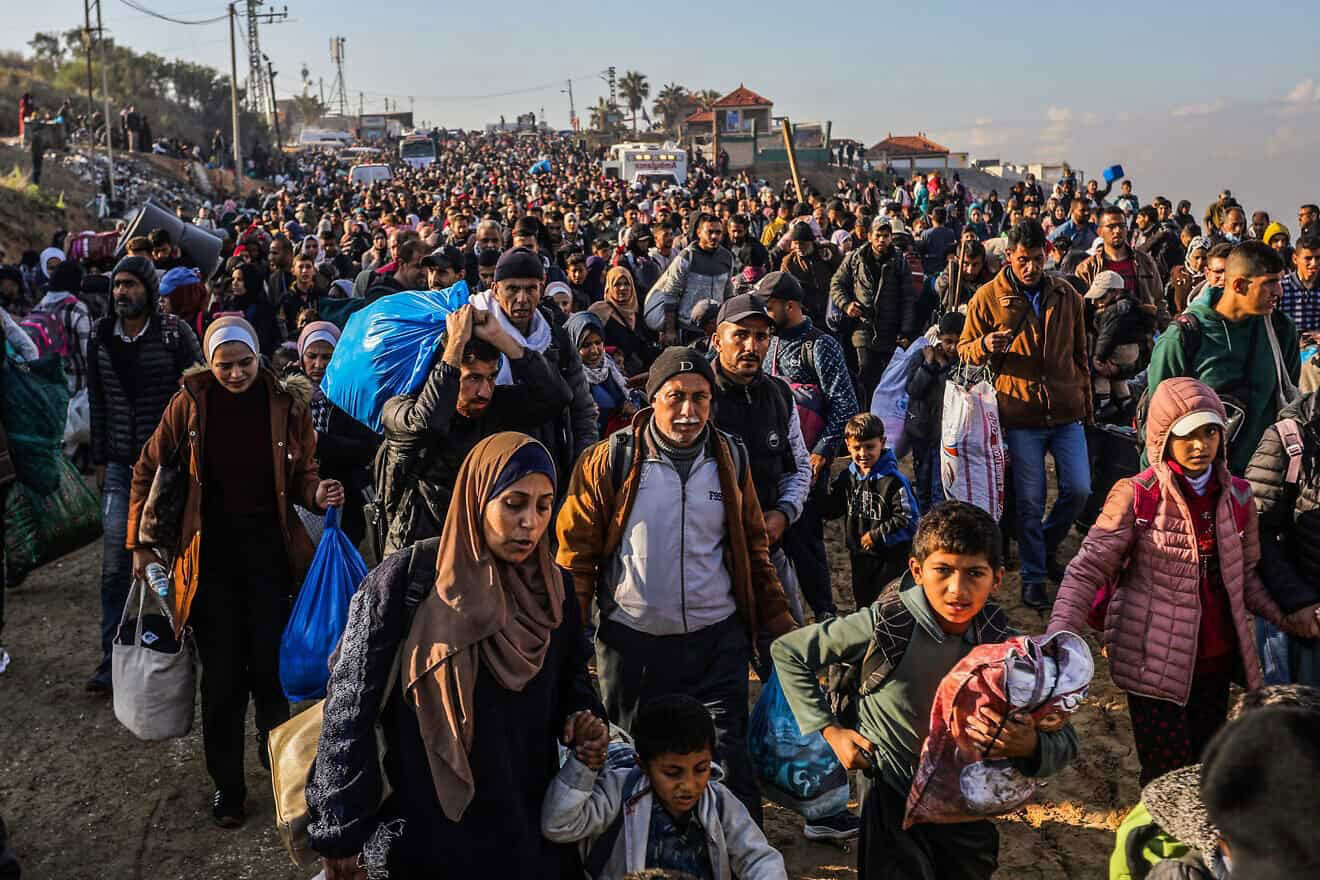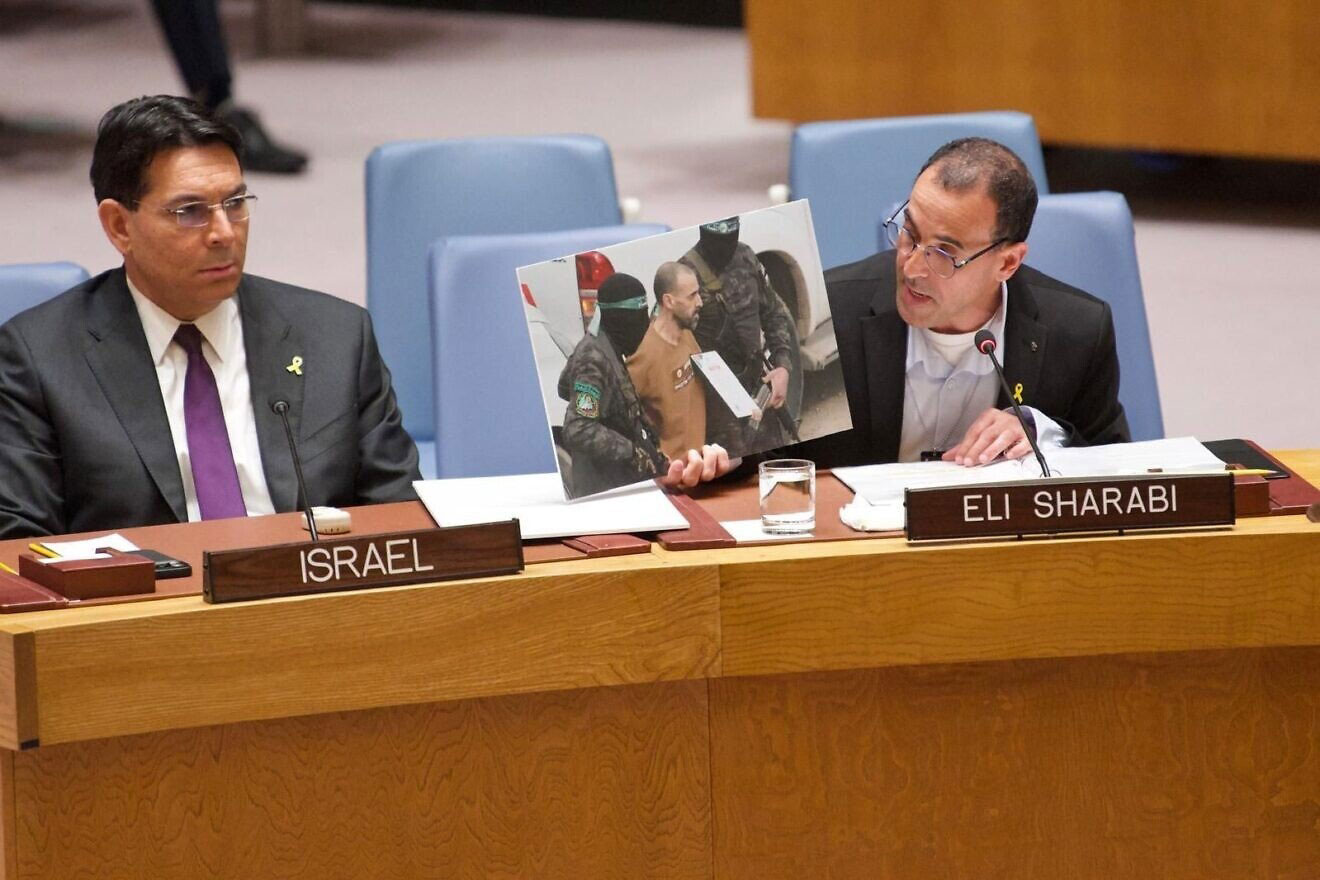Courtesy of JTA. Photo credit: Boris Bukhman
A festive Havdalah ceremony marking the end of the Sabbath was among the highlights of Limmud FSU’s first conference in Ukraine since the outbreak of war there, May 25, 2024
(JTA) — Nicole Tolkacheva, 52, has endured nearly two and a half years of war as her native Odesa gets pounded by Russian missiles.
“Every morning, the city checks who and what survived the night,” she said of Ukraine’s storied Black Sea port city. “In this life, you don’t know what’s safer: running to the shelter and risking your life on the way, or staying at home and risking being buried under the rubble.”
But one recent weekend, Tolkacheva got a reprieve from the war. She and 200 fellow Ukrainian Jews gathered in the relative safety of Uzhhorod — a city in western Ukraine far from the fighting — for a Limmud FSU weekend festival of Jewish learning and culture.
“Limmud is an island of normal human life where you don’t have to be afraid, you don’t have to constantly worry about your child, and you don’t have to make lifesaving decisions,” Tolkacheva said. “You are just alive and living, which means little in peacetime but so much during a war.”
The May 24-26 event in Uzhhorod, a city of 115,000 near where the borders of Slovakia, Hungary and Ukraine meet, marked the first Limmud FSU event on Ukrainian soil since the war with Russia started in February 2022. Limmud FSU is a nonprofit, nondenominational cultural and educational organization designed to foster community and Jewish identity among Jews from the former Soviet Union. It holds events all over the world — including in North America, Europe, the Caucasus, Israel, and Australia.
“We hope that Limmud FSU gatherings truly serve as a light in these dark times,” said Limmud FSU’s founder, Chaim Chesler, during the opening event.
“It is incredibly special to us, and it’s a testament to the strength and spirit of our Ukrainian Jewish community,” co-founder Sandra Cahn added.
The region of Ukraine in which the festival took place, Transcarpathia, has changed hands many times over the centuries. It was part of the Austro-Hungarian Empire until World War I, was considered Czechoslovakian until World War II, and today is part of Ukraine.
“Transcarpathia is a peaceful and tolerant region,” said Uzhhorod Mayor Bohdan Andriiv. “We thank our defenders and protectors for the opportunity to gather here.”
The deputy governor of Transcarpathia, Ivancho Vasil, also attended and addressed participants.
Transcarpathia’s Holocaust history — when the Nazis deported nearly all the region’s 100,000 Jews to Auschwitz, where all but a few thousand of them died — was among dozens of sessions at the Limmud FSU gathering. Other sessions ranged from a chat about the nuances of Israel’s Law of Return to the use of artificial intelligence in education to the Jewish roots of Argentine tango to how to build a career in information technology.
Participants also took a tour of Uzhhorod’s Jewish quarter and its former synagogue, built in 1904 and later used in Soviet times as a concert hall. Limmud FSU held a ceremony to honor the Jews of Uzhhorod who were murdered by the Nazis 80 years ago.
“This is the first conference to be held in Ukraine during the war, but Jewish life continues,” said Michael Brodsky, Israel’s ambassador in Kyiv. “This conference is an example of that, and of the fact that the Jewish community remains in Ukraine.”
Limmud FSU was founded in 2005 and is led by a number of notable Jewish figures, including Matthew Bronfman and Malcolm Hoenlein. Since Limmud FSU’s first conference 19 years ago, over 80 events have been held, reaching over 80,000 Jews with roots in the former Soviet Union who today live across the globe.
“Bringing Limmud FSU back to Ukraine is a powerful statement of resilience and hope for the Jewish community,” said Bronfman. “In these challenging times, it’s crucial to provide a space for learning, connection and cultural continuity. Limmud FSU serves as a beacon of unity and strength for Ukrainian Jews facing the hardships of war.”
The last Limmud event in Ukraine took place in October 2021 — four months before the war — in the western city of Lviv, near Ukraine’s border with Poland. During the war, Limmud FSU organized gatherings for Ukrainian Jews outside the country — in Berlin and the Polish cities of Warsaw and Lublin.
“The work being done by our partners at Limmud FSU in Ukraine is critical to the Jewish community in that war-beaten country,” said Gideon Taylor, president of the Conference on Jewish Material Claims Against Germany, one of the Limmud FSU’s major supporters. “To provide an opportunity for people to come together safely and get a much-needed reprieve from continuous war is a necessary break from the realities of the region. In coming together, people can see that they are not alone. They can see that they are strong and resilient, and they can carry that sense of empowerment forward.”
Other sponsors of Limmud FSU include the World Zionist Organization (WZO), the Jewish National Fund-KKL, the American Jewish Joint Distribution Committee, the Wilf Family Foundation, the Dutch Jewish Humanitarian Fund, Diane Wohl, Bill Hess and others.
After determining that Uzhhorod would be a safe location inside Ukraine, Limmud FSU executive director Natasha Chechik, project manager Galina Rybnikova and the team of volunteers, many of whom are temporarily or permanently living abroad, coordinated to pull it off.
This was the second Limmud event for Kateryna Popova, 40, of Odesa. At the outset of the fighting she spent several months in Romania, but then returned home despite the war.
“Coming to Limmud and getting away from everyday life was so necessary at this time,” Popova said. “Once you attend Limmud, you do not want to miss the next one.”
At the Ukraine event, the WZO featured an exhibit on the history of antisemitism.
“Now more than ever, understanding where antisemitism comes from and how it found expression through the centuries — culminating in the Nazi genocide — helps us find the tools to combat today’s antisemitism,” said Dr. Raheli Baratz, head of the WZO’s Department for Combating Antisemitism & Enhancing Resilience. “In light of the dramatic surge in antisemitism worldwide since October 7, it is imperative that we educate and equip communities with the knowledge and resilience to confront and overcome these challenges.”
Ukrainian-born Alex Mershon, director of the Department of Culture and Education at Nativ, a unit of the Israeli Prime Minister’s Office focused on Jews from the former Soviet Union, noted that he emigrated to Israel 34 years ago but still addressed the public in Ukrainian: “Nativ has been cooperating with Limmud FSU for more than a decade, but this is a special occasion. I congratulate everyone on this amazing achievement.”
Odesa resident Olga Spesivykh, 46, said she’s gotten used to the constant sirens, power outages and explosions that have marked life in her city of 1 million since the war began, but that it’s very wearing.
“Sometimes, you reach a point where you cannot find the resources to go on,” she said. “For me, Limmud is that magic wand that fills me with strength,” Spesivykh said, recalling her first Limmud in the Ukrainian city of Truskavets in 2010 with her daughter, then 6. “Since then, I’ve missed only two or three meetings. I look forward to immerse myself again in this atmosphere of friendliness, knowledge and kindness.”
Kyiv resident Olga Bard, 37, said the weekend get-together was her 14th or 15th Limmud festival.
“For me, Limmud is a personal event, an event for the Jewish community,” Bard said. “Even in very difficult and sad times, we find the strength to gather, organize and plan — and we do not give up.”





